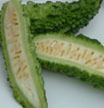Diabetic retinopathy is an eye disease that can cause decreased vision and blindness. Depending on a patient's condition, diabetic retinopathy can progress quickly or slowly. Factors that may hasten the progress include heavy smoking and poorly controlled hypertension, diabetes and hyperlipidemia (high cholesterol).
It occurs when the eye vessel leaks and the retina becomes ischaemic, or half-dead. Since the retina lacks oxygen, it produces a substance which induces the formation of new blood vessels which are abnormal.
These abnormal blood vessels can bleed suddenly and lead to immediate blindness. It is not easy to reverse this as it requires major surgery.


